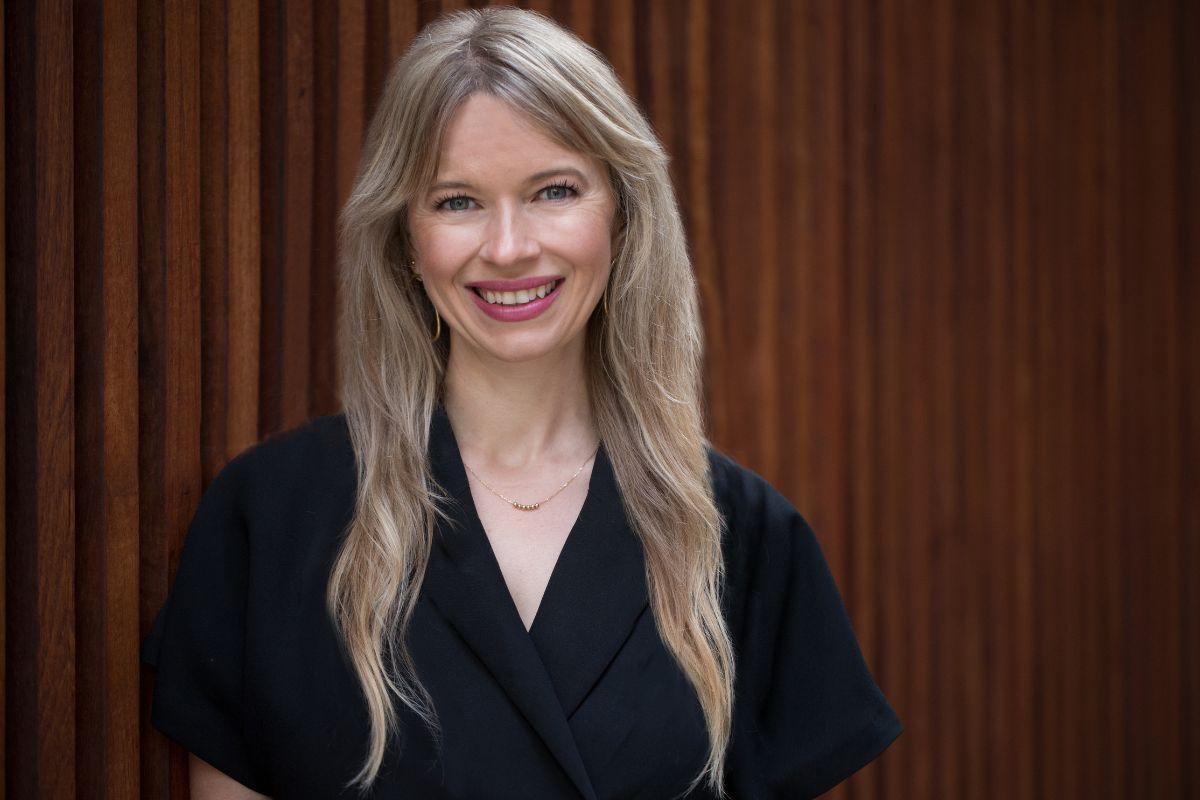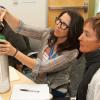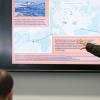
Ashley Moore, MS’ 20, RN, current student in the PhD Nursing program.
Equipping Providers for a Changing Climate World
Climate change affects our way of life, including our health. But its impact is not always reflected in health care education, which can result in missed diagnoses or treatment plans.
Ashley Moore, MS’ 20, RN, current student in the UCSF School of Nursing’s PhD Nursing program and alumna of the Health Policy and Public Health Nursing specialty, works as a nurse at the UCSF Helen Diller Comprehensive Family Cancer Center. She’s part of a UC-wide consortium that is designing climate health education and training programs for UC students in nursing, pharmacy, public health and medicine.
Moore shares how she became interested in health care, and how she is working in multiple ways — from her dissertation to a fellowship at Columbia University — to prepare health care workers to care for patients in a rapidly changing climate world.
Did you always know you wanted to be a nurse?
I’ve always had a passion for justice and an interest in health inequities. I grew up as a daughter of two health care workers in rural Missouri, but I didn’t pursue a career in health care initially.
After earning my first degree in international relations, I thought I would go to law school. I accepted a job to work with Specialists in International Training & Education, responding to the aftermath of the massive 2005 earthquake in northern Pakistan. I worked alongside incredible doctors and nurses and saw how their hands-on skills impacted the lives of their patients. I wanted to have those tools, too, and I ultimately decided to return to school for nursing.
You earned your bachelor’s degree and RN license in Missouri. How did you come to UCSF?
I was working as a travel nurse and came to the Bay Area on a three-month contract. I did not expect to stay in California, but I fell in love with the Bay Area and was not ready to move on when my contract ended. At the same time, I was encouraged to pursue my master’s degree, so I enrolled in the School of Nursing.
While in the master’s program, I completed an internship at the World Health Organization. I worked with a group looking at the global impact of nursing, analyzing statistics about the global nursing workforce. Working with nurses from all over the world, I saw the gaps in nursing care and education, but I also saw the contributions nurses are making around the world.
Back in the Bay Area, I realized I wanted the tools to conduct my own research, so I decided to enroll in the PhD Nursing program.
How did you get involved in designing the UC curriculum for assessing climate impact in health care settings?
This is a UC-wide initiative that was sponsored by the UC Center for Climate, Health and Equity. I’m part of a group of eight people: four students from different disciplines including nursing, pharmacy, public health and medicine; partnered with four faculty members from those disciplines.
We came together with the goal of developing a roadmap to help educators from all disciplines incorporate climate and planetary information into already existing curricula.
Why is this needed?
Historically, educational institutions have treated climate change education as its own isolated course. But climate change impacts every aspect of health, so it should be taught in already existing curricula. For example, if you are teaching about respiratory health, you need to discuss the exacerbation of problems through air pollution, allergens and wildfire smoke exposure.
Climate change’s impacts on our health should be taught from the very first day of our training programs, in whatever health field you’re pursuing. But academic institutions are behind.
The goal of this project is to provide educators a road map of how to talk about these issues alongside their current teaching materials. As of today, we have created that road map, and it is being evaluated by different stakeholders. We’re hoping to finalize it and have it in the hands of educators next year. This is a collaborative project and adaptable based on feedback from learners and educators.
How does this tie into the work you’re doing with the Climate and Health Education Student Fellowship at Columbia University?
Every year, the Lancet Countdown releases a publication tracking the progress or lack of progress made in addressing climate change, both in health care education and in policies in health care institutions around the world. Next year’s publication will include a focus on nursing education. I am working with a group of Columbia University nurses to review existing curricula or frameworks within nursing schools that address the teaching of climate and planetary health. We are looking at what is working and what is missing, to identify gaps in educational resources around the world. We hope to create policies and guidelines for educators.
You have a lot of directions you can go when you finish your PhD this year. If I called you in 10 years, where do you think you’ll be?
I always come back to two things: First, I hope that I am teaching in some capacity. I am passionate about nursing education and helping nurses see that not only do they have a role at the bedside, but they have a powerful and a much-needed voice in advocacy. I want to encourage nurses to get involved and make a difference locally, within their state and within our nation.
Second, I hope to be working in the community with women. I have a heart for women who have been displaced, whether in the United States or internationally. In fact, my dissertation focuses on women displaced by the 2023 flood in Watsonville, California.
I’m unsure the exact form that goal will take, but I’m passionate about women’s health, and I could see myself working with grassroots organizations. I want to continue to share the voices of people who feel like they are not being heard.



